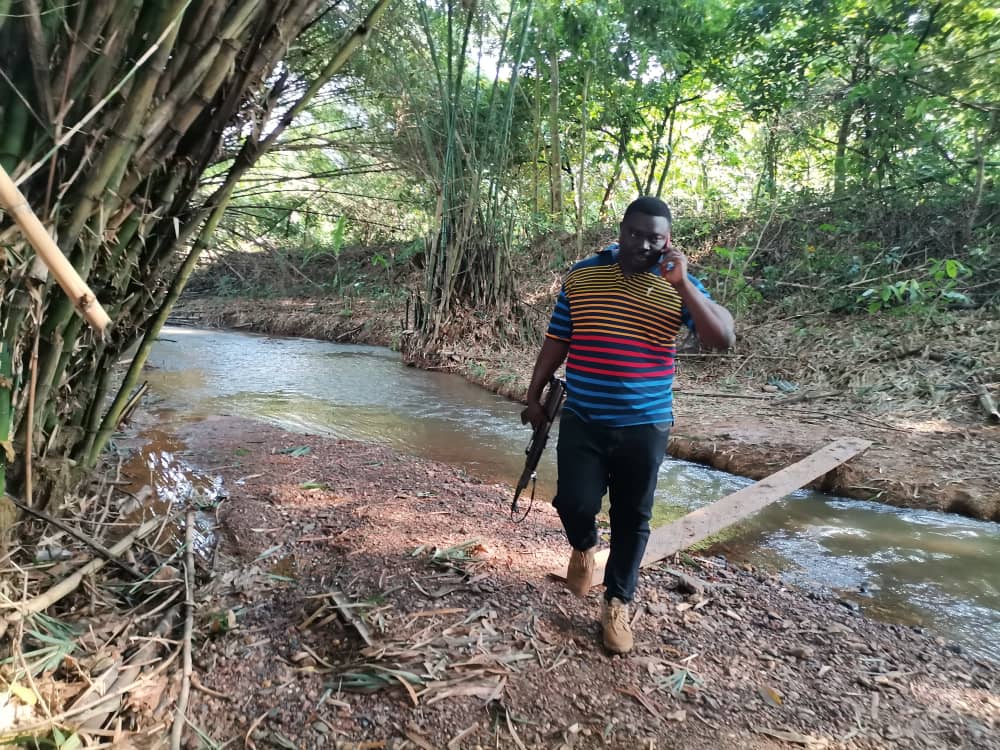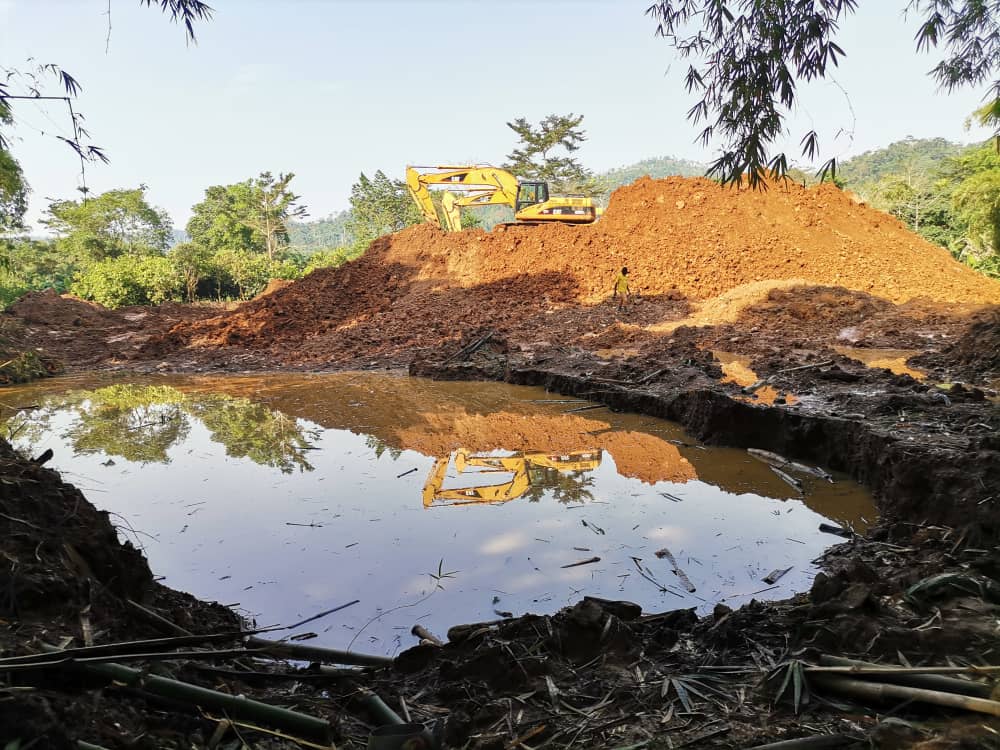Climate Change & Energy
Community Mining Under Siege: Police Arrest Miners For Destroying River Densu
Source: ghenvironment.com - January 16, 2021

The polluted river densu
Some miners claiming to be working under the name of the Odumase Community Mining Programme have been arrested by the Kyebi Police Command in the East Akim Municipal Assembly of the Eastern Region.
The arrest of the miners followed a complaint filed by the environmental NGO, A Rocha Ghana, to the Police and the Water Resource Commission, over the destruction of the Densu river basin through their unregulated mining activities.
The Densu River is a 116 km long river in Ghana rising in the Atewa Range and spans through 11 Local Government Assemblies in three regions such as Central, Eastern and Greater Accra Region. it is also part of the three major water bodies in the Eastern Region providing portable drinking water for adjacent communities and about five million downstream users in the Greater Accra Region.
Information available to ghenvironment.org revealed that, when the Police operation team and personnel of the Water Resources Commission from Koforidua stormed the mining site at Odumase and Potroase, the miners claimed to be working in a concession belonging to Akooko Mines, but it was discovered to be untrue.

Member of the security taskforce
This is because, according to the Officer from the Water Resources Commission, a permit to work on the Concession belonging to Akooko Mine had expired and due to poor practices, their permit was not renewed. Investigations are however ongoing.
Community Mining Programme or Galamsey?
Ghana has over the years witness a disastrous effect of illegal mining popularly known as galamsey, as the various water bodies, forest and other endowed rich natural resources are being destroyed with impunity.
With no seeming solution to deal with the canker by successive governments, it was all joy and happiness when in November, 2019 the current government gave a green light for the commencement of regulated, responsible and sustainable mining under the Community Mining Programme (CMP).
At a ceremony to inaugurate the CMP programme, Professor Kwabena Frimpong-Boateng, the then Minister of Environment, Science, Technology, and Innovation explained that, the programme was a major step towards reducing illegal small-scale mining, formalizing mining activities as well as give all miners training and official cover.
He announced that, as part of measures to achieve the goals of the programme, all the registrants to the programme would be trained at the University of Mines and Technology (UMaT), Tarkwa to have their licensed before they could start mining.
Prof Frimpong-Boateng stated at the time that, unlike the previous practice where small-scale mining was done haphazardly, the CPM would be inclusive, well-regulated with a dedicated central processing site adequately equipped. He added that, it would stop the old practice of mining in water bodies and the proceeds would be well allocated to all relevant bodies.
But, many environmentalists in the country are of the firm belief that, the CMP has failed to live up to expectation after a year of being operationalized, as it is unregulated. According to them, the CMP has led to the mining being done haphazardly, with the destruction of land and water bodies being carried out with impunity by the Miners.
Any Hope?
President Akufo Addo in his last state of the nation address on Tuesday January 5, 2021, called for an open and dispassionate conversation about illegal mining and its future.
He said the devastating nature of illegal mining required from leaders the duty to take the subject out of the party-political arena and engage in an honest conversation about the menace for the sake of current and future generations.
“There is one subject about which I believe we, the people, need to have an open conversation, and that is galamsey. Should we allow or should we not allow galamsey, the illegal mining that leads to the pollution of our water bodies and the devastation of our landscape? he asked
He added “As I have said often, the Almighty having blessed us with considerable deposits of precious minerals, there would always be mining in Ghana. Indeed, there has always been mining in Ghana. The problem we have is the use of modern technology that leads to the illegal mining methods posing serious dangers to our water bodies and the health of our environment.
 Member of the security taskforce
Member of the security taskforce



 The polluted river densu
The polluted river densu
